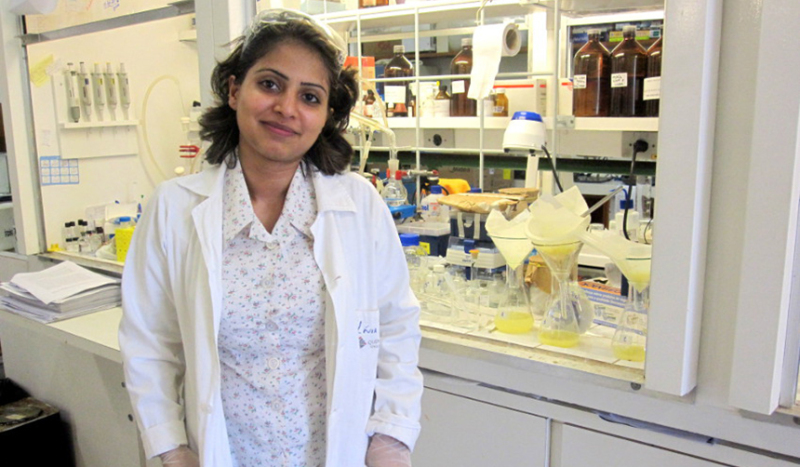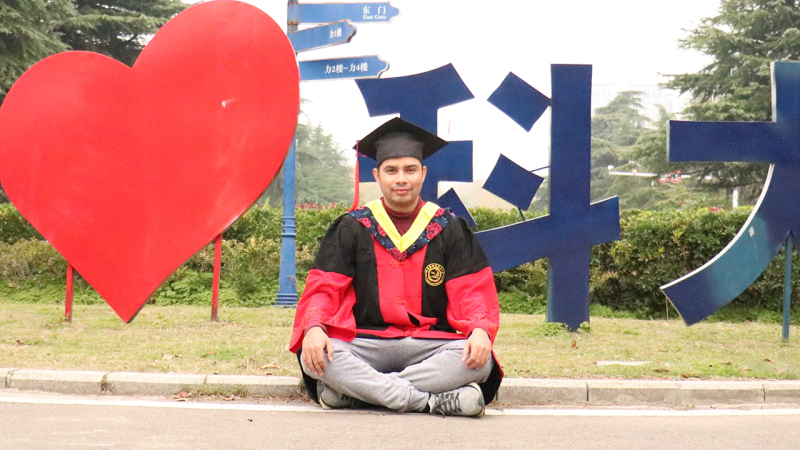
What is a science fellowship?
Fellowships are a way for research scholars to receive specialized training at an institution abroad. These can be vital sources of a PhD education in the sciences, engineering, or mathematics. Postdoctoral fellowships can also provide post-PhD training in which the recipient carries out research that will shape the future of their science career.
Tip: Many TWAS fellowships are currently accepting applications, and can be found on our opportunities listing. For more information, contact fellowships@twas.org.
What is a South-South fellowship?
TWAS provides fellowship programmes in which scholars from a developing country can travel to, reside in, and work in another developing country for PhD or postdoctoral training. These kinds of fellowships are called ‘South-South Fellowships’, and they are a cornerstone of the Academy’s work.
In fact, TWAS’s South-South PhD and postdoctoral research fellowship programme is the world’s largest. South-South Fellowships also create bonds between scientists in different developing countries, often allowing the ‘emerging economies’ such as China, India, South Africa, and Brazil, to provide crucial training in research skills to citizens of other nations.
TWAS currently offers about 120 PhD fellowships per year, collaborating with eight partners in five countries; and about 90 postdoctoral fellowships per year, collaborating with eight partners in four countries.
These fellowships also expose scientists to expertise that is simply unavailable in their home countries. So far, over 2,400 developing world scientists have begun PhD research through fellowship programmes organized by TWAS and its partners throughout the world. TWAS fellowships have graduated at least 1150 PhDs, and at least 480 postdoctoral fellowships have also been completed.
![TWAS PhD Fellowship recipient Oluwarotimi Samuel shows a prosthesis built in his lab at the Shenzhen Institute of Advanced Technology in China. [Photo: SIAT-CAS]](/sites/default/files/styles/cke_media_resize_large/public/media/samuel-for-web-fellowships.png?itok=NfSLAF-Z)
What do TWAS fellowship recipients receive?
It depends on the fellowship. But usually, TWAS covers travel and initial visa expenses, and the programme partner provides financial support such lodging, tuition, and stipends. But for details on the level of support a candidate may receive, it is important to read the description of the individual fellowship programme you are interested in.
How do I acquire a TWAS fellowship?
Announcements of open calls are available here on twas.org. PhD fellowships can be found here, and postdoctoral fellowships are here. Also available is a listing of all open deadlines for TWAS programmes, in which fellowships are often prominently included.
Broadly speaking, women scientists and researchers from the United Nations list of Least Developed Countries are especially encouraged to apply.
Applicants should choose carefully, because they may only apply for one fellowship per year. Furthermore, for the ANSO-CAS-TWAS/UNESCO scholarship the applicants can only apply to one of the two host universities: University of Science and Technology of China (USTC), or the University of Chinese Academy of Sciences (UCAS).
![Bangladeshi molecular parasitologist Vishaka Dey pursued her PhD at the Indian Institute of Technology Bombay (IIT), in Mumbai, through a TWAS fellowship. [Photo provided]](/sites/default/files/styles/cke_media_resize_large/public/media/vishaka-dey.jpg?itok=57lw5TfH)
What fellowships does TWAS offer?
In recent years, TWAS offered fellowships with high-level science institutions in Brazil, China, India, Pakistan, and Türkiye. When they open, it's usually for several weeks or months until they close, and because these opportunities typically repeat on a yearly basis, new calls will open in 2026. Current partners for these fellowships include:
Brazil
- São Paulo Research Foundation (FAPESP) [For 2024 postdocs only]
China
- Alliance of International Science Organizations (ANSO) and the Chinese Academy of Sciences (CAS) [PhDs only]
India
- Council of Scientific and Industrial Research (CSIR) [PhDs and postdocs]
- Department of Biotechnology (DBT), Ministry of Science & Technology [PhDs and postdocs]
- S. N. Bose National Centre for Basic Sciences (SN Bose) [PhDs and postdocs]
Pakistan
- International Centre for Chemical and Biological Sciences (ICCBS) [PhDs and postdocs]
- National Centre for Physics (NCP) [postdocs only]
Türkiye
- The Scientific and Technological Research Council of Türkiye (TÜBİTAK) [PhDs and postdocs]
![Material scientist Domingos Lusitâneo Pier Macuevele of Mozambique, third from left, studied in Brazil for a TWAS-CNPq fellowship. [Photo provided]](/sites/default/files/styles/cke_media_resize_large/public/media/mozambique-to-brazil-web.jpg?itok=eWPTPWbr)
How do PhD and postdoctoral fellowships benefit science in developing countries?
At the heart of the TWAS mission is to build science capacity in developing countries where the infrastructure for research lags behind. This means the Academy’s goal is to help developing countries train more scientists with expertise in important fields such as agriculture, the environmental sciences, the social sciences, and even basic sciences such as mathematical physics.
TWAS fellowships train scholars from nations that would fill critical gaps through having a stronger science ecosystem in their own countries. These highly trained scientists can thus go on to set up labs, teach students, and train further scientists in their own home countries.
What are some examples of success made possible through TWAS fellowships?
Here are just a few examples of scientists from all over the world who have benefited from a TWAS Fellowship:
- Shalini Arya, an Indian food technologist, aims to improve the Indian population's health by improving locally available foods. She received vital training through a TWAS postdoctoral fellowship with the National Council for Scientific and Technological Development of Brazil (CNPq).
- Adekunle Adeleke of Nigeria received vital postgraduate training through a TWAS fellowship with CSIR of India in 2016. Since then, he became head of the Department of Mechanical Engineering at Nile University of Nigeria.
- Nigerian robotics expert Oluwarotimi Samuel received his PhD in China through the CAS-TWAS President’s Fellowship programme in 2014, giving him the expertise he now uses to develop technology that provides amputees with a better quality of life.
- Biotechnologist Almas Taj Awan of Pakistan, through a PhD fellowship with TWAS and CNPq, was able to conduct PhD research on using orange waste as a source of bioethanol. She has written: “It is because of the TWAS fellowship programme that I was able to think outside of the box and develop a much brighter vision.”
- Aakash Kumar of Pakistan received a PhD in artificial intelligence at the University of Science and Technology of China (USTC) through a CAS-TWAS President’s Fellowship. He was the 1,000th graduate of the TWAS PhD Fellowship programme.

Where can I ask any further questions I might have?
Please send queries on details about our programmes to fellowships@twas.org, and our fellowships office will respond to you as soon as they are able.
Sean Treacy

